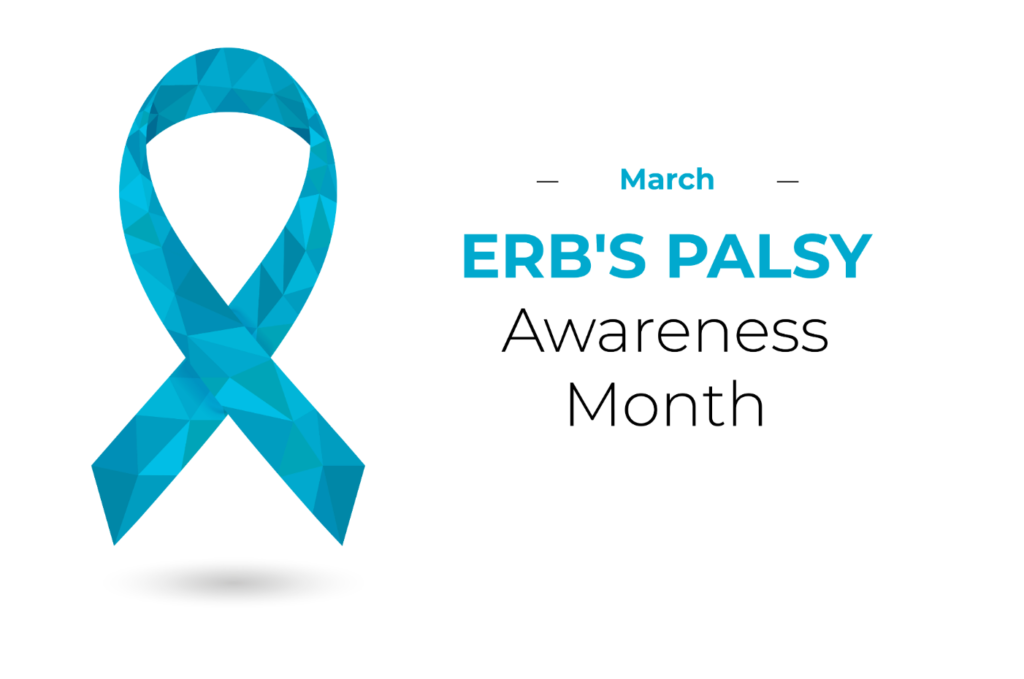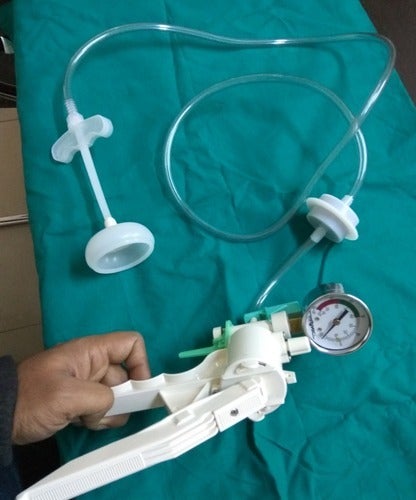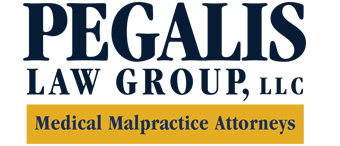-
How to Reduce Your Risk of Anesthesia-Related Injuries

While anesthesia-related injuries have become much rarer in recent years, many patients are still concerned about them—and understandably so. If you are preparing to undergo anesthesia for a medical procedure, you may be wondering if there is anything you can do to reduce your chance of suffering an injury. Here are some tips to keep in mind:
Ask your physician about potential complications.
Before you decide to undergo anesthesia, talk to your medical provider about any possible side effects or injuries that could result. Make sure that you’ve discussed each possibility, and that you fully understand the information you’re getting. Don’t be afraid to ask follow-up questions, or to express any hesitations you’re feeling.Consider your family history.
If you have any family members who have ever experienced a negative physical reaction to anesthesia, it could indicate that you are more likely to experience a similar reaction. If you find out that you do have a family history of bad reactions to anesthesia, be sure to tell your physician.Follow all pre-anesthesia instructions.
Your physician will provide you with instructions to follow prior to receiving anesthesia, and it’s important that you follow all of them. In particular, you should avoid eating before your anesthesia is given to you and refrain from taking vitamins, supplements, and anything else that might interfere with the safe administration of the anesthesia.If you have questions about medical care or treatment, or a catastrophic injury, don’t delay in calling Pegalis Law Group, LLC for a no-fee consultation! We obtain justice for our clients after hospitals, doctors, construction companies, and drivers commit preventable errors that cause harm. Reach us at (516) 684-2900.
Attorney Advertising
-
Why Regular Blood Tests Are Important

Can you remember when you had your last blood test? If you want to make sure that your body stays as healthy as it should, routine blood tests are essential. While you may have had blood tests done in the past, you may not be sure why they are so important to your health and welfare. Here’s why blood tests are so critical for everyone.
Testing for Diseases
Blood tests are often used to determine whether or not a patient has contracted a certain disease or has a chronic condition that cannot be detected otherwise. Some diseases and disorders that are commonly diagnosed using blood samples include anemia, diabetes, coronary heart disease, and HIV.Evaluating Your Organs
Your physician may also want to make sure that your organs are functioning properly, particularly in the aftermath of surgery. Organs that are often evaluated by taking blood samples include the liver, the heart, the kidneys, and the thyroid. If your physician suspects that you might have a disease of any of these organs, or if there is a concern that medications you are taking are affecting your organs, he or she may order a blood test.Assessing Your Blood
Blood tests can also be used to evaluate your cholesterol level, your protein level, your blood sugar, and other issues that are specific to your blood. A blood test may also be used to test how well your blood is clotting, and it can even be used to determine your current oxygen level.If you have questions about medical care or treatment, or a catastrophic injury, don’t delay in calling Pegalis & Erickson, LLC for a no-fee consultation! We obtain justice for our clients after hospitals, doctors, construction companies, and drivers commit preventable errors that cause harm. Reach us through our website or call (516) 684-2900.
Attorney Advertising
-
Hospital Safety Tips

When most people go to the hospital, they assume that they will be well cared for by capable medical providers. However, it’s still important to be proactive and to take appropriate steps to protect your own health and safety as a patient. Here are some tips to keep in mind if you need to stay at a hospital or other medical facility:
Bring someone with you.
If possible, it’s a good idea to bring a trusted friend or family member with you to the hospital. Along with providing moral support, having someone with you will help you remember to ask the right questions—and also help you remember the answers!Keep careful track of your medications.
If you are prescribed to take any medications while you’re at the hospital, make sure you know what they are called, what they are for, and what the proper dosage is. Receiving the wrong medication is one of the most common forms of hospital negligence, so it’s important to keep track of your medication schedule. Also make sure that before receiving any medication, the person giving it to you checks and scans your ID wristband. Doing so will ensure that the medication is for you.Find out who to call for help.
When you arrive at the hospital, make sure that you know the doctor and nurse assigned to your care. Also, make sure that you let them know if there is a change in your condition. Hospitals can be busy environments, and knowing who you should call or ask for will also help to keep you safe. Don’t be afraid to speak up regarding changes in your condition or any questions you may have.If you have questions about medical care or treatment, or a catastrophic injury, don’t delay in calling Pegalis & Erickson, LLC for a no-fee consultation! We obtain justice for our clients after hospitals, doctors, construction companies, and drivers commit preventable errors that cause harm. Reach us through our website or call (516) 684-2900.
Attorney Advertising
-
What Is Shoulder Dystocia?

Shoulder dystocia is a serious injury that can endanger mothers as well as their children. It most often happens during the delivery process when a baby’s shoulders are too large to fit through the birth canal. Physicians must be careful in responding to this issue, or they may inadvertently cause harm to the child. Here is what you need to know about shoulder dystocia:
Risk Factors for Shoulder Dystocia
While larger babies may be more prone to shoulder dystocia, it can happen to babies of any size. If the mother gives birth later than the due date, if an epidural is used, or if birth is induced, it may raise the risk of shoulder dystocia. However, shoulder dystocia can also happen when no risk factors are present.Common Complications of Shoulder Dystocia
If a medical provider fails to observe sufficient caution or does not follow the proper procedures in responding to shoulder dystocia, they risk injuring the baby during delivery. This can lead to Erb’s palsy, a form of paralysis caused by nerve damage. Babies who sustain this damage may or may not recover, and some will have their arm function permanently impaired. Mothers may also sustain painful tearing of the vagina, uterine rupture, laceration of the rectum and postpartum hemorrhage. Often, these injuries occur when medical providers fail to predict that shoulder dystocia is likely to happen during delivery.If you have questions about medical care or treatment, or a catastrophic injury, don’t delay in calling Pegalis & Erickson, LLC for a no-fee consultation! We obtain justice for our clients after hospitals, doctors, construction companies, and drivers commit preventable errors that cause harm. Reach us through our website or call (516) 684-2900.
Attorney Advertising
-
Preventing Birth Defects

There is never a wrong time to time to educate yourself about birth defects and how you can help to prevent them from happening. While birth defects cannot always be prevented, there are some steps you can take that will reduce the risk of them occurring.
Get up to date on your vaccines.
Vaccinations are important for protecting yourself from illness, but they can also protect your unborn baby. It’s important to make sure that you get the yearly flu shot, as well as the whooping cough vaccine. Make sure to consult your physician before getting vaccinated, so you can be sure that you’re doing it at the right time.Avoid harmful substances.
As every physician will advise you, abstaining from tobacco, alcohol, marijuana, and other drugs is essential during pregnancy. Having any level of these drugs in your body can significantly raise your risk of birth defects, so it’s important to quit using them as soon as you find out that you are pregnant.Take folic acid every day.
Folic acid is a B vitamin that serves a number of important functions, including promotion of new cell development. According to the CDC, you should take 400 micrograms of folic acid on a daily basis during pregnancy. This is an important step that will help to reduce your baby’s risk for birth defects of the spine and brain. You shouldn’t take higher doses than this unless your physician has recommended it.If you have questions about medical care or treatment, or a catastrophic injury, don’t delay in calling Pegalis & Erickson LLC for a no-fee consultation! We obtain justice for our clients after hospitals, doctors, construction companies, and drivers commit preventable errors that cause harm. Reach us at (516) 684-2900.
Attorney Advertising
-
Facts about Heart Disease in Women

In the United States, heart disease takes the life of one woman every minute. About one in four women dies of heart disease, making it the leading cause of death for American women. Still, heart disease is often considered a “man’s disease” and many women do not realize how serious it is. Knowing the symptoms and risk factors, as well as preventive measures you can take, can mean the difference between life and death.
Symptoms of heart trouble can be different for women than they are for men. While men typically experience crushing chest pain, the indication that something is wrong can be less clear for women. In fact, some women have no symptoms at all. 64 percent of women who die suddenly from heart disease have no previous symptoms, but for those who do have symptoms, the warning signs are often unrelated to chest pain. Signs of a heart attack can include:
- Pain in the neck, jaw, shoulder, upper back or abdomen
- Shortness of breath
- Pain in one or both arms
- Nausea or vomiting
- Sweating
- Lightheadedness or dizziness
- Unusual fatigue
Of course, a heart attack is not the only heart condition that affects women. Arrhythmia can cause fluttering feelings in the chest, and signs of heart failure may include shortness of breath, fatigue, and swelling of the feet, ankles, legs, and abdomen. A woman having a stroke may experience sudden weakness, paralysis or numbness of the face, arms, or legs, or other symptoms that include confusion, trouble speaking or understanding speech, difficulty seeing, shortness of breath, dizziness, loss of balance or coordination, loss of consciousness, or a sudden, severe headache. These symptoms can happen when a woman is resting and can be triggered by mental stress.
One difficulty in treating heart disease in women is that women tend to go to the emergency room after the heart has already been damaged. This is sometimes because women don’t know the symptoms, but it can also be because they downplay their own health concerns and prioritize other things, like work and family. The best thing a woman can do for her health is to see her physician regularly, know her own risk factors, and be proactive in making positive lifestyle choices to prevent heart disease.
What are the risk factors for heart disease? High blood pressure, high LDL cholesterol, and smoking are major factors, and about half of Americans have at least one of these risk factors. However, there are also many other conditions that can put women at a higher risk of developing heart disease.
- Diabetes puts women at a greater risk than men with diabetes.
- Excess weight increases the risk of heart disease and raises the probability of developing other risk factors.
- A poor diet and inactivity raise the risk of heart disease, and so does excessive use of alcohol.
- Mental stress and depression affect women’s hearts more than it affects men’s.
- Pregnancy complications like high blood pressure or gestational diabetes can increase a woman’s long-term risk for developing heart disease.
- Menopause and the accompanying low levels of estrogen pose a risk for developing heart disease in the smaller blood vessels.
- Some treatments for cancer can raise the risk of heart disease, and women with inflammatory diseases like rheumatoid arthritis or lupus may be at a higher risk.
How can you reduce your risk of developing heart trouble? There are lifestyle changes that can make a big difference in your cardiac health. Steer clear of cigarettes, and make sure you’re paying attention to your health, managing problems like diabetes and high blood pressure or cholesterol. Eat a healthy diet full of nutrient-dense foods like fruits and vegetables, low-fat dairy products, lean meats, and whole grains, while avoiding processed foods, saturated or trans fat, added sugar, and foods high in salt. Limit your alcohol intake to one drink per day, and find healthy ways to manage stress. Exercise is important too, and it’s recommended that you aim for 30 minutes of moderate to vigorous activity, at least five days per week.
Finally, be your own advocate when it comes to your health. Sometimes, doctors fail to notice the subtler signs of heart disease, and serious conditions go undiagnosed. If you think something is not right, push for a thorough examination. Don’t brush off or downplay your symptoms, do prioritize your own health. If your doctor isn’t willing to take you seriously, get a second opinion.
If you have questions about medical care or treatment, or a catastrophic injury, don’t delay in calling Pegalis & Erickson, LLC for a no-fee consultation! We obtain justice for our clients after hospitals, doctors, construction companies, and drivers commit preventable errors that cause harm. Reach us through our website or call (516) 684-2900.
Attorney Advertising
-
Health Tips for Moms-to-Be

If you’re an expectant mother, it’s important to take some extra precautions to ensure that you stay healthy throughout your pregnancy. For instance, you’ll want to take care to avoid foods that could put you at a higher risk of foodborne illnesses that could affect your baby. These foods include hot dogs, deli meats, soft cheeses, smoked salmon, and anything that contains unpasteurized milk. You should also be careful to wash your hands before and after handling food, to wash all fruits and vegetables before eating them, and to keep raw meat out of contact with the other foods you eat. Make sure all food is cooked to the appropriate temperatures, and refrigerate uneaten portions right away.
If you are concerned about a misdiagnosis or possible medical error, contact the law firm of Pegalis & Erickson LLC in New York. For 45 years, we have advocated for people of all ages, in order to help our clients financially and make healthcare safer for everyone. You can reach us today by calling (516) 684-2900.
Attorney Advertising
-
How Cerebral Palsy Affects Nutritional Needs

Cerebral palsy is a congenital disorder that affects a child’s mobility, muscle tone, and balance. It is linked to injury to the brain that occurs during, before, or immediately after being born. The repercussions of cerebral palsy usually affects many aspects of a child’s life, including their diet. Unfortunately, cerebral palsy can make it more difficult for a child to get the nutrition they need to stay healthy. Here’s what you need to know:
Cerebral palsy can affect the ability to eat
Having cerebral palsy can impact motor skills, which can make it a challenge to hold utensils or feed oneself. It can even make it difficult to chew or swallow food safely without choking. As a result, children who have cerebral palsy may be unable or reluctant to eat, and they may have difficulty learning to feed themselves without supervision. This can lead to lifelong problems with nutrition.Cerebral palsy can cause gastrointestinal problems
Studies have shown that children who have cerebral palsy are more likely to develop gastrointestinal issues, including chronic stomach aches, diarrhea, constipation, and pain in the abdomen. This, in turn, can lead to difficulty keeping food down. Children who have these problems may find it hard to eat the kinds of foods they need in order to lead a healthy life, and they may experience related problems with weight gain. Often children who have cerebral palsy may need a G-tube which feeds supplemental nutrition directly into the stomach so that the child gets enough nutrients to grow.Children with cerebral palsy need the right nutrients
Parents of children with cerebral palsy need to make sure that they are getting the proper nutrients in order to ensure that their bones stay strong and healthy. This means that they need to be getting plenty of vitamin D, calcium, and phosphorus. If you are concerned that your child is not gaining weight normally and/or not getting all of the appropriate nutrients, talk to your doctor right away.If you have questions about medical care or treatment, or a catastrophic injury, don’t delay in calling Pegalis & Erickson, LLC for a no-fee consultation! We obtain justice for our clients after hospitals, doctors, construction companies, and drivers commit preventable errors that cause harm. Reach us at (516) 684-2900.
Attorney Advertising
-
What Are the Risks of Vacuum Assisted Deliveries?

For the most part, pregnancy and childbirth are natural processes. In some cases, however, mother and baby face risks, whether during the pregnancy or during labor. When there are complications, and the danger becomes too great, doctors often feel they must intervene to promote a positive outcome. When the intervention involves a vacuum assisted delivery however, there are significant risks involved.
* Why do doctors use vacuums? Sometimes at the end of a difficult labor, the doctor decides to help the process along using vacuum extraction if the mother or baby is in distress.
* How does the process work? Once the baby is low enough in the birth canal to be delivered, a vacuum cup is placed on the baby’s head, with suction applied so the cup doesn’t fall off. When the mother has another contraction, the mother pushes while the doctor pulls the baby using the vacuum cup.
* What risks does a patient face with a vacuum extraction? Vacuum extraction poses risks for the baby. Some of these are relatively minor complications like scalp lacerations or bleeding in the space under the fibrous portion of the skull bone. These typically clear up on their own, though the bleeding, called cephalohematoma, can sometimes require surgery. More serious complications include subgaleal hematoma, which is more serious bleeding below the scalp and can be life-threatening if a significant amount of blood is lost, or intracranial hemorrhage, which is bleeding under the skull that can lead to severe brain injury. There’s also a risk of skull fracture.
* What’s the responsibility of the doctor when choosing to use vacuum extraction? With all these risks, it’s clear that this intervention should only be used when absolutely necessary, and with informed consent from the mother. Often, there are signs and symptoms long before delivery, which should alert the medical care providers that it will be a difficult delivery. A discussion should be had with the mother about the option of a caesarian delivery, so as to avoid the potential risks associated with the use of a vacuum. Medical providers must inform patients of all the associated risks, and use this procedure only when it’s necessary and provided with the utmost competence.
If you or your baby suffered an injury during an assisted delivery, it may be time to contact a medical malpractice attorney. Pegalis & Erickson, LLC is here to help you, providing capable legal representation in the areas of New York. If you have questions about medical care or treatment, or a catastrophic injury, don’t delay in calling Pegalis & Erickson, LLC for a no-fee consultation! We obtain justice for our clients after hospitals, doctors, construction companies, and drivers commit preventable errors that cause harm. Reach us at (516) 684-2900.
Attorney Advertising
-
The Magnitude of Handwashing

Regular handwashing is the most important thing you can do to help prevent the spread of dangerous bacteria and viruses. Handwashing is particularly critical in a medical environment, where patients may be at increased risk of infection. Here is what you need to know about the value of handwashing.
Handwashing can protect patients from infection
Medical facilities, by their nature, expose patients to the risk of illness. According to the Centers for Disease Control and Prevention, an average of one out of 25 hospital patients per day will come down with a hospital-related infection. Healthcare professionals can help to protect their patients by being diligent about following proper handwashing protocol.Handwashing should happen before and after contact with patients
Most people wash their hands after using the bathroom and before handling food. For healthcare professionals, however, handwashing needs to happen both before and after they come into direct contact with any patients they are providing care for. Otherwise, there is a serious risk that they will spread contaminants from one patient to the next, resulting in avoidable illness or infection.Proper handwashing is effective handwashing
In order to effectively remove germs from the hands, handwashing in a medical environment needs to be done carefully and thoroughly. Simply rinsing off your hands with water is not sufficient. In order to wash your hands effectively, you should start by rinsing your hands with clean water, lathering them with soap, scrubbing for at least 20 full seconds, and then completely rinsing them off.If you have questions about medical care or treatment, or a catastrophic injury, don’t delay in calling Pegalis & Erickson, LLC for a no-fee consultation! We obtain justice for our clients after hospitals, doctors, construction companies, and drivers commit preventable errors that cause harm. Reach us at (516) 684-2900.
Attorney Advertising
Recent Posts
Popular Posts
categories
- Uncategorized
- Infographic
- Patient Safety
- Patient Health
- Stillbirth
- Birth Injuries
- Medical Malpractice
- Medical Negligence
- Event
- Erb's Palsy
- Injury
- ER
- Video
- Cancer Misdiagnosis
- Medication Errors
- Cerebral Palsy
- Medical Negligence Lawyer
- Anesthesia Injuries
- Brachial Plexus
- Prostate Cancer
- About Us
- Men's Health
- Skin Cancer
- Breast Cancer
- Misdiagnosis



